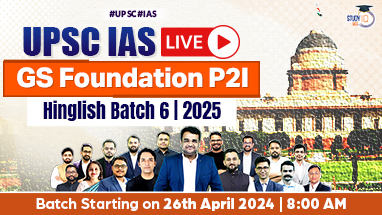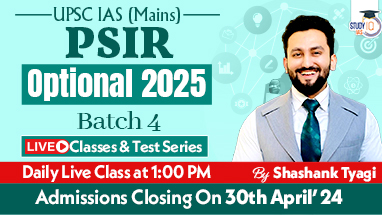Current Affairs 4th August 2023 for UPSC Prelims Exam
Foundational Agreements of USA
Context: Pakistan’s Cabinet has approved the signing of a new security pact with the U.S. called as Communication Interoperability and Security Memorandum of Agreement (CIS-MOA).
About Communication Interoperability and Security Memorandum of Agreement (CIS-MOA)
- Definition: The CIS-MOA is a foundational agreement that the US signs with its allies and countries with which it wants to maintain close military and defence ties.
- It also provides legal cover to the US Department of Defence for ensuring the sale of military equipment and hardware to other countries.
- Significance:
- The signing of the CIS-MOA means that the two countries are keen to maintain the institutional mechanism.
- The agreement might enhance bilateral relations, including in the defence field between US and Pakistan.
- The security pact between Pakistan and the US indicates that the United States might sell some military hardware to Pakistan in the coming years. However, it is being said that it will not be easy for Pakistan to buy military hardware from the U.S. despite this agreement.
- It is also being speculated that due to the growing strategic ties between the U.S. and India, Washington’s long-term interests are not aligned with Islamabad. Nevertheless, the U.S. needs Pakistan in some critical regions, and hence this agreement serves the purpose of both.
About US- Pakistan Relations
- Pakistan was once a major recipient of military and security assistance from the U.S., but with the Cold War ending and China challenging U.S. supremacy, things changed.
- The situation prompted Washington to seek closer cooperation with India to counter China, and meanwhile, Pakistan lost its decades of significance in the eyes of the U.S.
- Pakistan and the U.S. maintained close defence cooperation, but their ties came under strain due to differences over the issue of Afghanistan.
- The killing of former al-Qaeda chief Osama bin Laden by U.S. Navy Seals in Pakistan’s Abbottabad, close to a military training school in 2011, deteriorated the situation.
- Also in 2011, the U.S. forces bombed a Pakistani military outpost on the Afghan border, killing 24 soldiers and prompting Islamabad to block the land routes used by the allied forces to carry vital supplies to Afghanistan. The issue was later resolved, but the relations could not escape the shadow of Afghanistan.
- Former U.S. President had repeatedly accused Pakistan of not doing enough to route out militants. He also accused Islamabad of giving nothing to the U.S. other than “lies and deceit” in return for American aid.
- Since being elected as U.S. President in 2020, Joe Biden has not formally spoken to the Pakistani leadership.
- Things have improved between the two countries since the Shehbaz Sharif-led government took over in April 2022, and endorsement of the new pact may be a sign of a fresh beginning.
Current Affairs 3rd August 2023 for UPSC Prelims Exam
Foreign Contribution Regulation Act (FCRA)
Context: The Ministry of Home Affairs (MHA) has withdrawn the permit under the Foreign Contribution Regulation Act (FCRA) for U.K.-based NGO Save The Children’s Indian offshoot, Bal Raksha Bharat.
About Foreign Contribution Regulation Act
- Enactment: FCRA Act was enacted during the Emergency in 1976 amid apprehensions that foreign powers were interfering in India’s affairs by pumping money into the country through independent organisations.
- Aim: It aims to regulate foreign donations to individuals and associations so that they function in a manner consistent with the values of a sovereign democratic republic.
- Provision for Foreign Donation: The FCRA requires every person or NGO seeking to receive foreign donations to be:
- Registered under the Act
- To open a bank account for the receipt of foreign funds in the State Bank of India, Delhi.
- To utilise those funds only for the purpose for which they have been received and as stipulated in the Act.
- Eligibility Criteria for Registration:
- These registrations are granted to individuals or associations that have definite cultural, economic, educational, religious, and social programmes.
- The applicant should not be fictitious or benami; and should not have been prosecuted or convicted for indulging in activities aimed at conversion through inducement or force, either directly or indirectly, from one religious faith to another.
- Validity: Once granted, FCRA registration is valid for five years. NGOs are expected to apply for renewal within six months of the date of expiry of registration.
- Cancellation of Registration: Registration can be cancelled if an inquiry finds a false statement in the application.
- Once the registration of an NGO is cancelled, it is not eligible for re-registration for three years.
- The MHA also has the power to suspend an NGO’s registration for 180 days pending inquiry and can freeze its funds.
- All orders of the government can be challenged in the High Court.
LK-99 Super Conductor
Context: South Korean scientists claim to have developed a superconductor material named LK-99 that operates at room temperature, which could have huge implications for science and technology.
More on the News
- The researchers say that LK-99, a compound of lead, copper, phosphorus and oxygen, is a superconductor at temperatures above 400 kelvins (126.85°C) and ambient pressure.
- However, scientists are skeptical about claims of room temperature superconductivity due to the history of numerous unverified or false claims in the past.
What is Super Conductivity?
- Superconductivity refers to a state in which a material offers zero, or near-zero, resistance to electric current.
- When a material becomes superconducting, it loses all electrical resistance, allowing an electric current to flow through it indefinitely without any loss of energy.
- It was first discovered in 1911 by H. K. Onnes, a Dutch physicist, when he observed the abrupt drop in electrical resistance of mercury at extremely low temperatures near absolute zero (0 Kelvin or -273.15 degrees Celsius).
- Other materials commonly used as superconductors – Lead, Aluminum, Tin, Niobium etc. – also become superconducting at comparable temperatures, called critical temperature.
- Superconductivity has numerous practical applications, especially in the field of electronics, energy transmission, and medical devices.
- However, one of the challenges in using superconductors is the requirement for extremely low temperatures, often achieved using cryogenic cooling systems, which can be expensive and impractical for some applications.
Key Applications of Super Conductors
- Electricity transmission: Superconducting power cables can transport electricity with almost no loss, significantly reducing energy wastage during long-distance transmission.
- Magnetic levitation (Maglev) trains: Superconducting magnets in Maglev trains allow for frictionless levitation, enabling high-speed transportation with reduced energy consumption and noise.
- The levitation effect of superconductors is called the “Meissner-Ochsenfeld effect” or simply the “Meissner effect.”
- The Meissner effect is the complete expulsion of magnetic fields from the interior of a superconductor when it transitions into its superconducting state, causing it to exhibit perfect diamagnetism and repel applied magnetic fields, leading to levitation above magnets.
- Magnetic resonance imaging (MRI): Superconducting magnets are used in MRI machines to create strong and stable magnetic fields, producing detailed images of internal body for medical diagnosis.
- Particle accelerators: Superconducting magnets are utilized in high-energy physics research facilities like particle accelerators, enabling the precise control and focus of particle beams.
- Magnetic energy storage: Superconducting magnetic energy storage (SMES) systems can store large amounts of electrical energy for short periods, offering a potential solution for energy grid stabilization and peak power demands.
- High-performance computing: Superconducting devices can be used in advanced computing systems, particularly in quantum computing, to handle complex computations and data processing.
Significance of the Discovery
- As of now, superconductivity can be achieved only at very low temperatures i.e., very close to absolute zero which is – 273 degrees Celsius.
- If the discovery of room temperature superconductivity turns out to be true, it would revolutionize the technology around us.
- The ability to achieve superconductivity at room temperature would eliminate the need for expensive and complex cryogenic cooling systems.
- It would make superconducting technologies more practical and accessible for a wide range of applications.
Money Bills vs Financial Bills
Context: A Parliamentary Affairs Minister has stated that the Digital Personal Data Protection (DPDP) Bill is a normal Bill and not a Money bill.
About Financial Bills & Money Bills
- In a Parliament, a bill that has provisions related to financial matters is termed as a Financial Bill. There are 3 kinds of Financial Bills in the Parliament, viz. Money Bills, Financial Bills category-I and Financial Bill category-II.
- A Bill that contains some provisions related to taxation and expenditure, and additionally contains provisions related to any other matter is called a Financial Bill. Therefore, if a Bill merely involves expenditure by the government, and addresses other issues, it will be a financial bill.
- A Financial Bill (I) contains not only any or all the matters mentioned in the Money Bill, but also other matters of general legislation. It is dealt under Article 117 (1) of the Constitution.
- A Financial Bill (II) contains provisions involving expenditure from the Consolidated Fund of India but does not include any of the matters mentioned in Article 110. It is dealt under Article 117 (3) of the Constitution.
- A Money Bill is also a specific type of Finance Bill, that must deal only with matters specified in Article 110 (1) (a) to (g). A Bill is said to be a Money Bill if it only contains provisions related to taxation, borrowing of money by the government, expenditure from or receipt to the Consolidated Fund of India.
- Thus, the basic difference is that all money bills are financial bills, but not all financial bills are money bills.
| Money Bill | Financial Bill Category-I | Financial Bill Category-II |
| Dealt under Article 110 of the Constitution. | Dealt under Article 117(1) of the Constitution. | Dealt under Article 117(3) of the Constitution. |
| It is a government bill. | It is an ordinary Bill. | It is an ordinary Bill. |
| Prior recommendation of the President is required. | Prior recommendation of the President is required. | Prior recommendation of the President is not required. |
| The power of Rajya Sabha to amend or reject the Money Bill is restricted.
Also, within 14 days, the Upper House must submit the Money Bill back to the Lower House with its non-binding recommendations. |
Rajya Sabha can amend or reject the Financial Bill Category-I. | Rajya Sabha can amend or reject the Financial Bill Category-II. |
| The decision to declare a financial bill as a money bill is made by the Lok Sabha Speaker. | Approval from the Speaker is not required. | Approval from the Speaker is not required. |
| It can be introduced only in Lok Sabha. | It can be introduced only in Lok Sabha. | It can be introduced either in Lok Sabha or Rajya Sabha. |
| Provision of Joint sitting is absent. | Provision of Joint sitting is present. | Provision of Joint sitting is present. |
| Provisions of Article 110 are dealt with exclusively. | It includes provisions of Article 110, along with matters of general legislation. | It includes provisions on expenditure from the Consolidated Fund of India. |

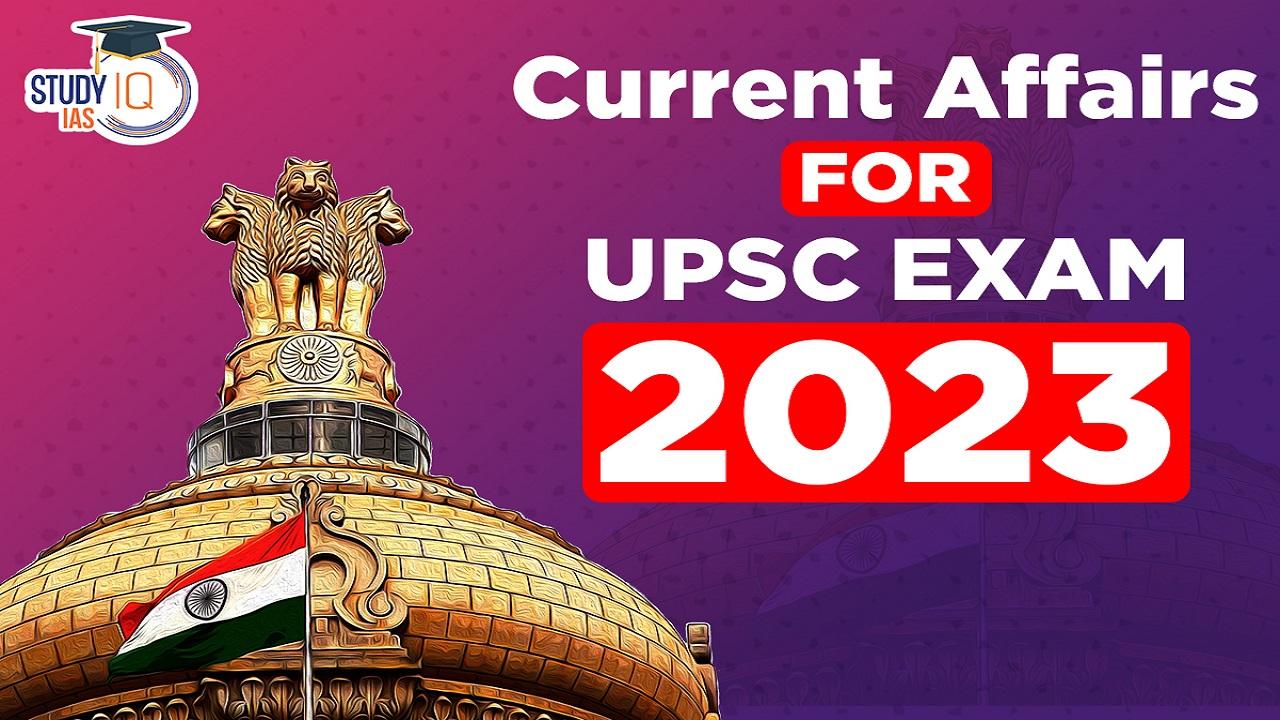
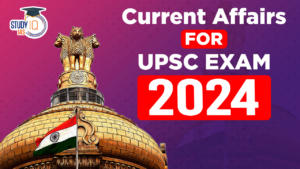 Current Affairs 27th April 2024 for UPSC...
Current Affairs 27th April 2024 for UPSC...
 Small Finance Banks, Key Features and Op...
Small Finance Banks, Key Features and Op...
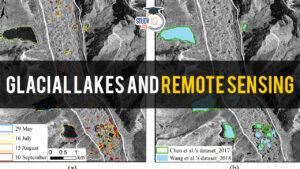 Glacial Lakes and Remote Sensing
Glacial Lakes and Remote Sensing
